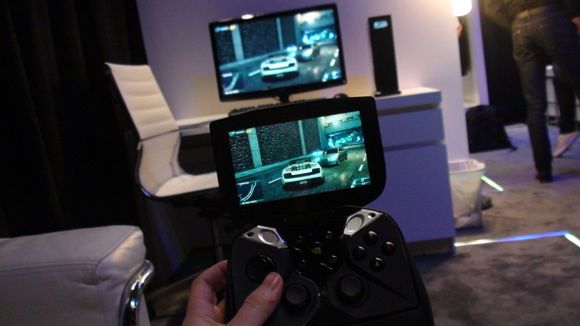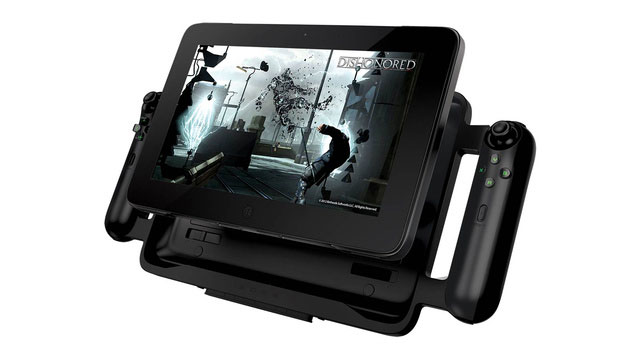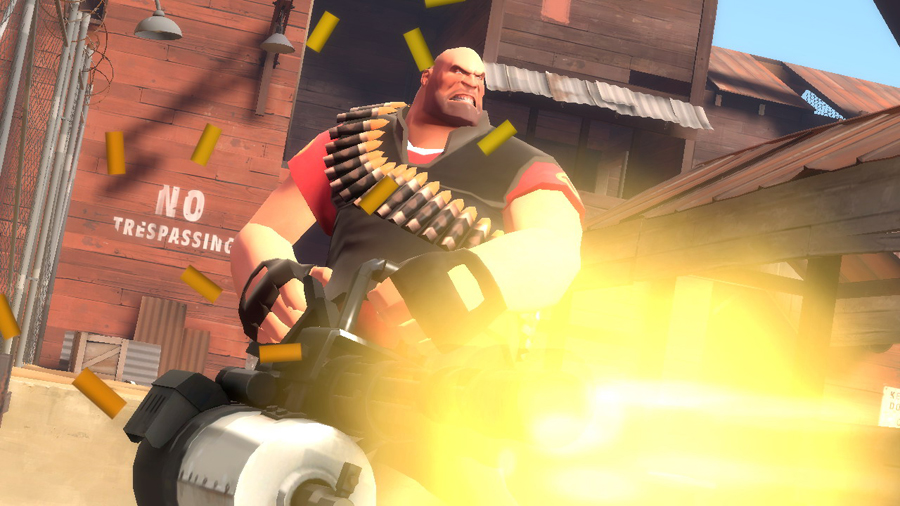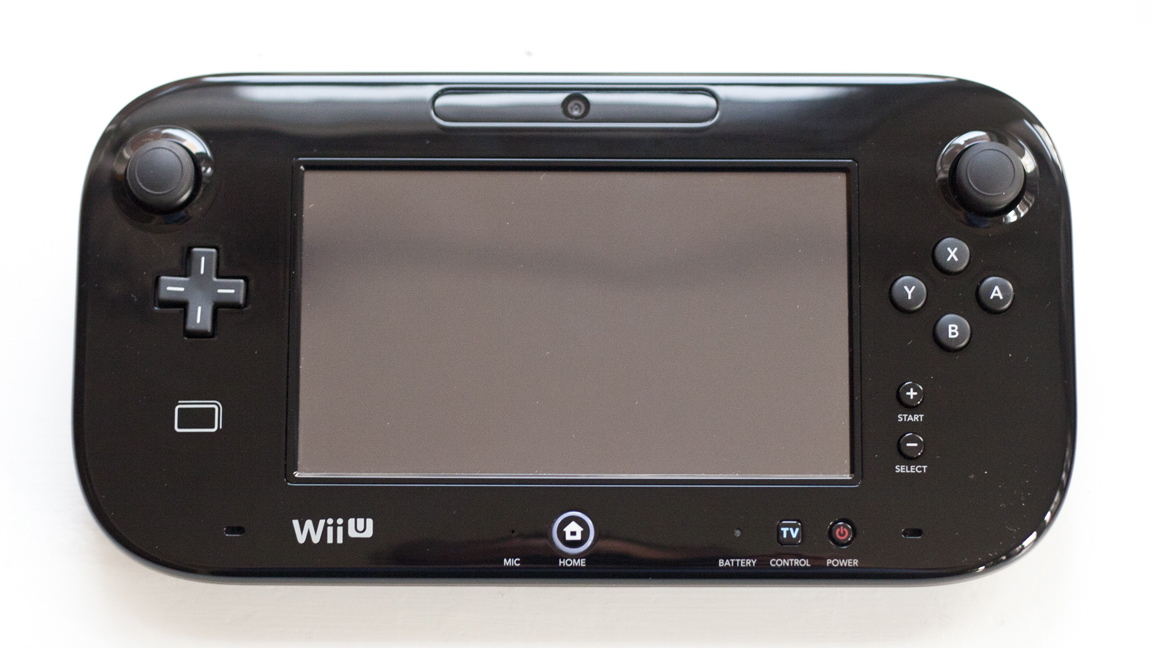How gaming stole the headlines at CES 2013
Valves, Edges and Shields all attract our interest

Forget television, forget mobile phones and tablets and definitely forget white goods - this CES was all about gaming, with Las Vegas' most exciting gadgets not made by Samsung, Panasonic or Sony, but by Nvidia and Razer.
This is already set to be a major year for the gaming world, with Microsoft likely to announce the new Xbox 720 and Sony potentially offering up the PlayStation 4 at the year's biggest gaming show, E3 2013.
But CES 2013 provided a fascinating glimpse at the changing tides of gaming with Nvidia's Project Shield, the ambitious Razer Edge gaming laptop/tablet/hybrid/thing and the first glimpse at a third-party Steam Box.
Android gaming has never been hotter. With manufacturers of televisions looking for the next killer apps, Google's stuttering TV project embraced OnLive's streaming while GameStick and KickStarter darling Ouya both garnered column inches.

And Nvidia's Project Shield, a portable Android-based Tegra 4 showcase that is essentially a gaming controller with a screen soldered on, underlined the interest. Google Play games will work on the device alongside Nvidia's TegraZone and, fascinatingly, it will also stream your games from a PC (as long as it is running an Nvidia GTX GPU).
It's too soon to say that this is the holy grail of handhelds, but it certainly caught the early CES attention in a way that the latest handy cams or iterations of plasma televisions did not.
CES also brought forth a finalised 'Project Fiona', now known as Razer Edge, which illustrated that gaming on the go can put years of PC heritage to good use and move away from the familiar (and familiarly hefty) gaming laptops.
Get daily insight, inspiration and deals in your inbox
Sign up for breaking news, reviews, opinion, top tech deals, and more.

Essentially a powerful Windows 8 tablet/laptop hybrid, the Razer Edge has two detachable gaming controllers that sit either side of the display and offer you a gaming experience that is aiming to bridge the gap between console and PC, but also bring portability.
Even within the TechRadar office it was a divisive gadget - with the $999/$1299 price point for its US launch in Q1 hotly debated, and just how portable it would prove to be also up for discussion.
Last, but not least for PC gaming fans, was the arrival of an Xi3 Steam Box along with a lot more information on Valve's big living-room project.
The Steam Box will bring PC gaming to the television, and is exciting enough to prompt guest columnist Rich McCormick to suggest that it could be a console killer.

That's unlikely, but if nothing else the excitement generated at CES is illustrative that the power is not necessarily just resting with big boys like Nintendo, Microsoft and Sony any more.
Gaming has shifted into the mainstream, aided by the Wii tapping into a non-traditional audience but principally because of 'casual' gaming on our phones, tablets and through social networks like Facebook.
As those efforts become more sophisticated, people's expectations change and create interest in projects outside of traditional consoles.
As gaming journalist and T3 deputy editor Matt Hill told us: "The fact that so much potentially game-changing gaming hardware has been announced at CES rather than E3 shows what a state of flux the industry is in.
"Nvidia's Project Shield, Razer's Edge, Valve's exciting plans for multiple Steam boxes – gamers' cups runneth over with intriguing, innovative and, most importantly, disruptive tech.
"Smartphones and tablets' subsidised products, quicker release cycles and low barriers to entry for consumers and developers have shown how antiquated the old 'games console every six years' script is, but the pace with which the industry is moving is quite something."
Let's be honest; the biggest gaming news of the year when we look back in unlikely to be Shield, Steam Boxes or the Razr Edge.
But these are the seeds of a much bigger trend; gaming is stepping outside of its traditional boundaries.

"The model needed disrupting, and the old guard need to respond," adds Hill.
"Gaming is no longer something consumers necessarily buy into, they expect it - on their phone, on their tablet, in their set-top box. It's become ubiquitous.
"Nintendo's Wii U is a fun product but its business model at present is very much in the old world – still no TVii, still no smartphone app, it really needs to move quickly – and it will be interesting to see how Sony and Microsoft respond at E3 or, more likely, earlier.
"PlayStation Vita is a great product that has suffered from a lack of coherent vision, can Sony get it right for the PS4? How will Microsoft continue its Xbox evolution into an entertainment hub rather than just a games machine? Will the new machine embrace Windows 8, if at all? We're in for a year of finding out."
Patrick Goss is the ex-Editor in Chief of TechRadar. Patrick was a passionate and experienced journalist, and he has been lucky enough to work on some of the finest online properties on the planet, building audiences everywhere and establishing himself at the forefront of digital content. After a long stint as the boss at TechRadar, Patrick has now moved on to a role with Apple, where he is the Managing Editor for the App Store in the UK.
